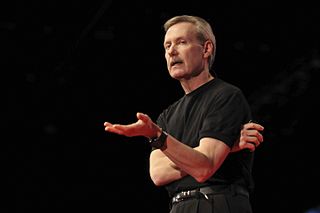A Quote by Eknath Easwaran
Through meditation and by giving full attention to one thing at a time, we can learn to direct attention where we choose.
Related Quotes
From the simplest lyric to the most complex novel and densest drama, literature is asking us to pay attention. Pay attention to the frog. Pay attention to the west wind. Pay attention to the boy on the raft, the lady in the tower, the old man on the train. In sum, pay attention to the world and all that dwells therein and thereby learn at last to pay attention to yourself and all that dwells therein.
You only learn when you give your whole being to something. When you give your whole being to mathematics,you learn; but when you are in a state of contradiction, when you do not want to learn but are forced to learn, then it becomes merely a process of accumulation. To learn is like reading a novel with innumerable characters; it requires your full attention, not contradictory attention.
Attention is the most powerful tool of the human spirit. We can enhance or augment our attention with practices like meditation and exercise, diffuse it with technologies like email and Blackberries, or alter it with pharmaceuticals. In the end, though, we are fully responsible for how we choose to use this extraordinary tool.
The thing about radio is that it's got an intimate feel. What I like is that you don't have to give it your full attention - you can still do something else that the same time, whereas TV is all-enveloping: you have to sit there and pay attention to it, and give yourself over to it. You have to surrender to it, but you don't with radio.

































